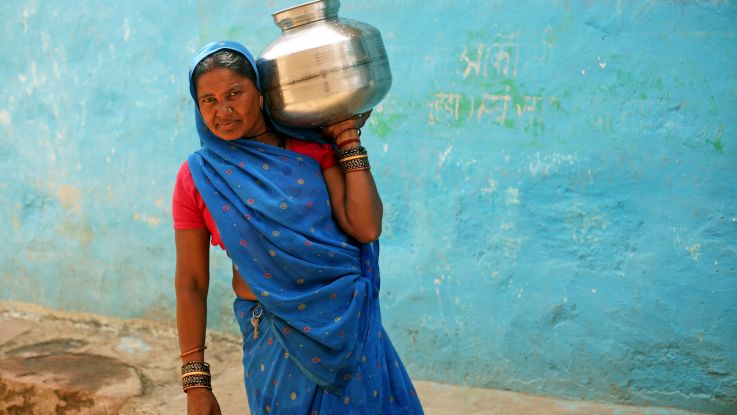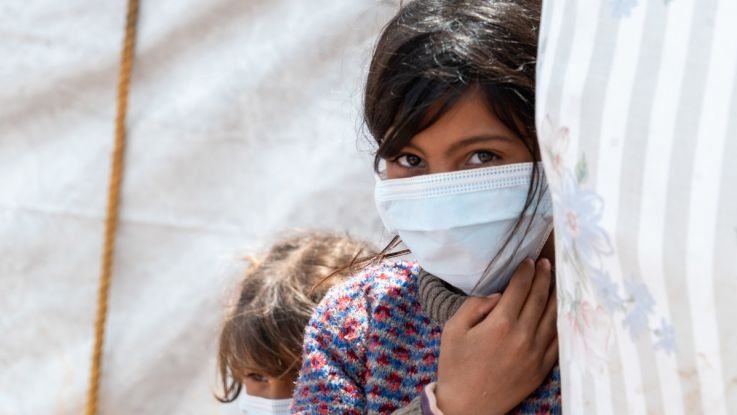Rohingya refugee crisis
Who are the Rohingya?
The Rohingya are a mainly Muslim ethnic minority group numbering about 1.1 million people in Myanmar. Around 90–95% of the Rohingya live in northern Rakhine.
The government of Myanmar, a predominantly Buddhist country, denies the Rohingya citizenship and excluded them from the 2014 census, refusing to recognise them as a people.
It sees them as illegal immigrants from Bangladesh.
What happened in Rakhine state?
In the early hours of 25 August 2017, violence broke out in Rakhine State, Myanmar.
Rohingya people’s villages were set ablaze, entire families were killed and women and girls faced atrocities including sexual violence.
The majority of people who fled travelled by foot, walking through jungle and rough terrain, or by boat, taking the perilous journey across the Bay of Bengal.
As of 2023, approximately 600,000 Rohingya remaining in Myanmar continue to be denied freedom of movement, equal access to citizenship and essential services.

Entire families of Rohingya refugees are living under just one sheet of plastic in Balukhali camp in Coxs Bazar, Bangladesh, after fleeing from Myanmar's Rakhine state .
Who is most affected by the Rohingya refugee crisis?
ActionAid Bangladesh reports that women are heavily affected, as well as those with disabilities and the elderly. A high number of unaccompanied children arrived in Bangladesh, who either lost their parents during the displacement or were brought over by extended family members.
ActionAid staff in Cox’s Bazar estimate that approximately 60% of refugees are single mothers.
During the monsoon and cyclone seasons, hailstorms, heavy wind, rain and lightning put lives at risk. Flooding can prevent thousands of refugees from receiving aid and if toilets and wastewater overflow, the risk of waterborne diseases spreading is high.
Farah Kabir, the Country Director of ActionAid Bangladesh, said: "Rohingya women and girls continue to bear the brunt of the refugee crisis. Those we work to support are bearing the physical, and mental scars of what they’ve experienced – including shocking sexual violence, pregnancy through rape, and a painful and dangerous journey to Bangladesh."
Today, amid extreme poverty, women and girls in the camps face intimate partner violence, forced marriage, and the threat of sexual violence. Now more than ever, the international community must listen to these women, who are claiming their rights and calling for a just solution to their plight.
ActionAid appreciates the role of the Government of Bangladesh in welcoming and providing safety to the Rohingya and for its commitment to not forcibly returning them to Myanmar, as well as the people of Bangladesh who are hosting and supporting the refugees.
What is ActionAid doing in Bangladesh to help Rohingya refugees?
Since 2017, ActionAid Bangladesh’s work has reached more than 945,809 Rohingya refugees and 8,734 local community members in Bangladesh; preventing and responding to violence against women and girls is a significant part of that work.
In 2022 alone, our response reached more than 327,000 people. As part of this response we operated 11 Women-Friendly Spaces - centres where mothers can breastfeed in private, receive hygiene kits, emotional support, and where needed access medical referrals.
We’ve also worked to:
- Support thousands of women and girls with counselling, case management and other referral services in response to cases of gender-based violence
- Reach thousands with projects to prevent gender-based violence, including awareness-raising sessions and even interactive theatre
- Improve the safety and overall living conditions in the refugee camps of Cox’s Bazar. Between January and March 2021 we built and repaired thousands of metres of stairways, pathways, bridges and drainage systems.
We also provide psychological support to those who’ve suffered trauma. For example, a devastating fire broke out in the camps in March 2023, leaving around 15,000 refugees homeless. We worked to provide trauma support, as well as food, clothing and hygiene items.
Incidents like these are common in the densely-packed camps: between January 2021 and December 2022 there were 222 fire incidents, including 60 cases of arson, according to a Bangladesh defence ministry report.2
Our support during the coronavirus pandemic
The Covid-19 pandemic made the situation for Rohingya refugees - many of whom are living in densely-packed camps with poor access to water - even more critical.
Throughout the pandemic ActionAid has worked tirelessly to improve access to water, sanitation and hygiene, as well as PPE and supplies like buckets and menstrual products.
We distributed thousands of facemasks, installed handwashing stations throughout refugee camps, and worked to combat misinformation about Coronavirus by distributing public health advice.
How we're helping Rohingya women and girls
Women - and especially mothers - have specific needs, and this is never more evident than during a humanitarian disaster. That’s why we put the prevention of gender-based violence at the heart of our approach.
We also distribute hygiene kits in the camps, containing essentials like menstrual products, soap and clean underwear. These kits help women, girls and people who menstruate to manage their periods safely and with dignity.
We've set up women-led ‘WATCH’ committees to monitor and prevent violence against women and girls. They also raise awareness about health and hygiene issues, and encourage women and girls to raise concerns and report their experiences of violence.
Through these leadership opportunities, ActionAid is supporting women to play an active role in community organisation and participate in decision-making processes.
We've also provided thousands of families with solar powered lights, which help women and girls feel safer moving around the camp at night.
And we've supported hundreds of Rohingya women and girls with sewing training, helping them to build a sustainable livelihood for the future.
ActionAid works with the women-led committees of refugees in the camps, to ensure the aid we provide is appropriate, meets the needs of women and girls and gets to the people who need it most.
A huge thank you
We'd like to say a huge thank you to everyone who makes our support for Rohingya refugees possible - including the Disasters Emergency Committee, The Alborada Trust and many individual supporters.
Page updated 6 February 2025



